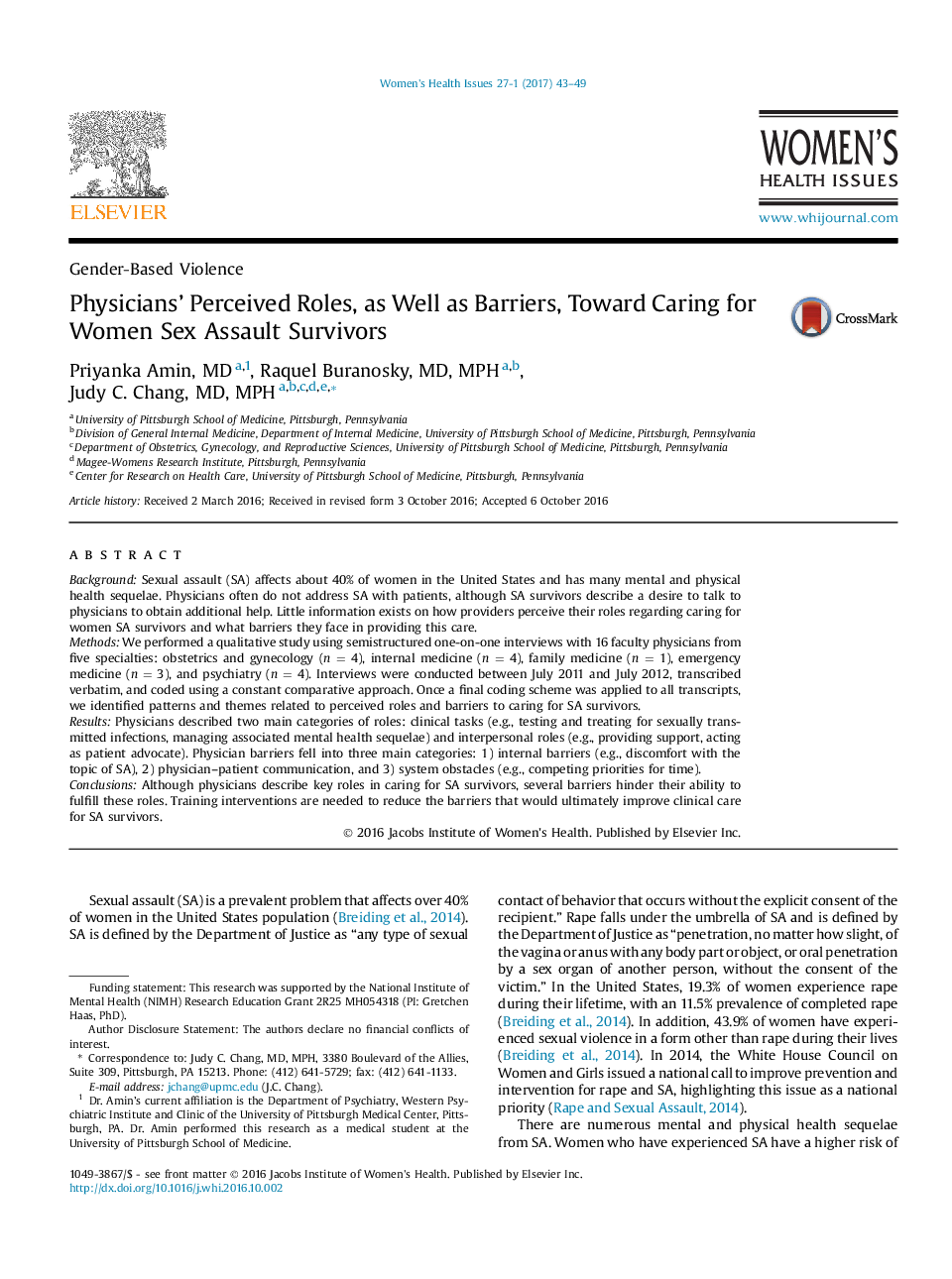| Article ID | Journal | Published Year | Pages | File Type |
|---|---|---|---|---|
| 5123402 | Women's Health Issues | 2017 | 7 Pages |
BackgroundSexual assault (SA) affects about 40% of women in the United States and has many mental and physical health sequelae. Physicians often do not address SA with patients, although SA survivors describe a desire to talk to physicians to obtain additional help. Little information exists on how providers perceive their roles regarding caring for women SA survivors and what barriers they face in providing this care.MethodsWe performed a qualitative study using semistructured one-on-one interviews with 16 faculty physicians from five specialties: obstetrics and gynecology (n = 4), internal medicine (n = 4), family medicine (n = 1), emergency medicine (n = 3), and psychiatry (n = 4). Interviews were conducted between July 2011 and July 2012, transcribed verbatim, and coded using a constant comparative approach. Once a final coding scheme was applied to all transcripts, we identified patterns and themes related to perceived roles and barriers to caring for SA survivors.ResultsPhysicians described two main categories of roles: clinical tasks (e.g., testing and treating for sexually transmitted infections, managing associated mental health sequelae) and interpersonal roles (e.g., providing support, acting as patient advocate). Physician barriers fell into three main categories: 1) internal barriers (e.g., discomfort with the topic of SA), 2) physician-patient communication, and 3) system obstacles (e.g., competing priorities for time).ConclusionsAlthough physicians describe key roles in caring for SA survivors, several barriers hinder their ability to fulfill these roles. Training interventions are needed to reduce the barriers that would ultimately improve clinical care for SA survivors.
